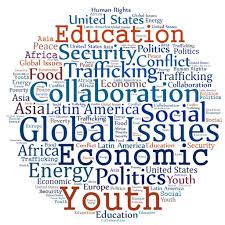Addressing Climate Change: Global Strategies for Mitigation and Adaptation
Climate change has become one of the most pressing issues of our time, with far-reaching consequences for our planet and future generations. It is imperative that we come together as a global community to address this challenge and implement effective strategies for both mitigation and adaptation. In this article, we will explore the importance of promoting global sustainable resources utilization and environment conservation, and discuss 15 key points to consider in our efforts to combat climate change.
-
Understanding the urgency: Climate change is an urgent issue that cannot be ignored. Rising global temperatures, extreme weather events, and the loss of biodiversity are clear signs that action needs to be taken now.
-
Mitigation strategies: Mitigation involves reducing greenhouse gas emissions to slow down the rate of climate change. This can be achieved by transitioning to clean and renewable energy sources, improving energy efficiency, and promoting sustainable transportation.
-
Adaptation strategies: While mitigation is crucial, we must also focus on adapting to the changes that are already occurring. This includes developing resilient infrastructure, implementing effective disaster management systems, and enhancing community preparedness.
-
International cooperation: Climate change is a global problem that requires a global response. International cooperation and collaboration are essential in sharing knowledge, technology, and resources to tackle this challenge together.
-
Sustainable development goals: The United Nations' Sustainable Development Goals provide a framework for countries to prioritize sustainable development while addressing climate change. These goals encompass poverty eradication, access to clean water and sanitation, affordable and clean energy, and responsible consumption and production.
-
Encouraging sustainable practices: Individuals, businesses, and governments all have a role to play in promoting sustainable practices. This can range from reducing waste and recycling to supporting companies that prioritize sustainability in their operations.
-
Investing in renewable energy: Renewable energy sources such as solar, wind, and hydropower offer a sustainable alternative to fossil fuels. Investing in renewable energy infrastructure can create jobs, reduce carbon emissions, and contribute to a more sustainable future.
-
Preservation of natural resources: Conserving natural resources, such as forests and water bodies, is essential in mitigating climate change. Forests act as carbon sinks, absorbing CO2 from the atmosphere, while water bodies help regulate temperatures and support biodiversity.
-
Raising awareness: Education and awareness are key in promoting sustainable practices and addressing climate change. By informing individuals about the impacts of their actions and providing solutions, we can empower them to make environmentally conscious choices.
-
Sharing best practices: Governments and organizations should share successful strategies and initiatives in addressing climate change. By learning from each other's experiences, we can accelerate progress and avoid reinventing the wheel.
-
Encouraging innovation: Innovation plays a crucial role in developing new technologies and solutions to combat climate change. Governments and businesses should support research and development efforts that aim to reduce carbon emissions and promote sustainability.
-
Shifting to a circular economy: A circular economy focuses on reducing waste and maximizing the use of resources through recycling, reusing, and repurposing. This transition can lead to more sustainable production and consumption patterns.
-
Sustainable agriculture: The agricultural sector is a significant contributor to greenhouse gas emissions. By promoting sustainable farming practices, such as organic farming and agroforestry, we can reduce emissions and protect natural resources.
-
Engaging with local communities: Climate change affects different regions and communities differently. Engaging with local communities, understanding their unique challenges, and involving them in decision-making processes are essential in developing effective climate change strategies.
-
Empowering individuals: Lastly, it is crucial to empower individuals to take action in their daily lives. By providing them with the knowledge, tools, and resources they need, we can collectively make a significant impact in the fight against climate change.
In conclusion, addressing climate change requires a comprehensive and collaborative approach. By promoting global sustainable resources utilization and environment conservation, we can mitigate the impacts of climate change and create a more sustainable future for generations to come. Let us all take responsibility and join hands in this global endeavor.
How are you contributing to the promotion of global sustainable resources utilization and environment conservation? Share your thoughts and ideas in the comments below. Together, we can make a difference. #ClimateAction #SustainableFuture #GlobalUnity







